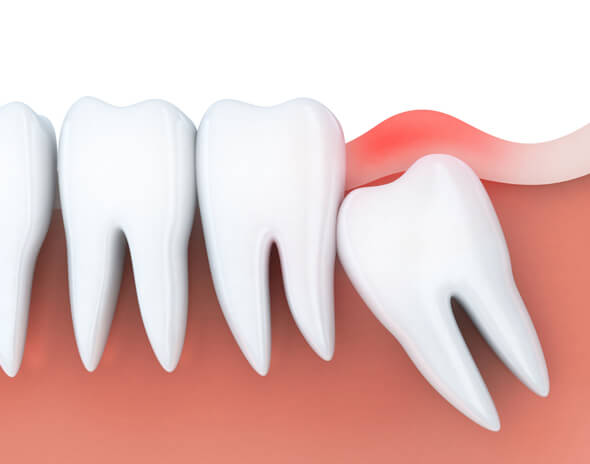Expert Dentists
Expert Dentists
Blog Article
Discovering Different Sedation Options for a Comfortable Knowledge Pearly Whites Removal Experience

Neighborhood Anesthesia
Regional anesthetic is a generally made use of method for numbing certain areas of the mouth during knowledge teeth removal treatments. By providing an anesthetic, such as lidocaine, a dental practitioner can ensure that the patient continues to be comfy and pain-free throughout the removal procedure. Regional anesthesia works by temporarily blocking the nerves in the mouth, avoiding them from sending out discomfort signals to the mind. This permits the dental expert to execute the removal without triggering any type of discomfort to the patient.
One of the main advantages of regional anesthesia is its targeted numbing impact, which suggests that only the details location being dealt with is affected. This local strategy decreases the danger of systemic negative effects and allows for a quicker recovery post-procedure. wisdom teeth removal aspendale. Furthermore, local anesthesia is thought about to be a routine and risk-free method in dental care, with very little risks included when administered by an experienced expert
Laughing Gas

Additionally, laughing gas is recognized for its rapid healing time. When the mask is removed, the effects of the gas wear away promptly, permitting people to resume their regular tasks without remaining sedative impacts. This makes laughing gas a hassle-free selection for those that require to drive themselves home after the oral appointment. Moreover, laughing gas appropriates for individuals of every ages, making it a functional sedation option for wisdom teeth removals and various other oral procedures.
Oral Sedation

Among the main advantages of oral sedation is its convenience of management. Unlike intravenous sedation, dental sedation does not click now call for shots or needles, making it a much more comfortable choice for individuals with a concern of needles. Additionally, dental sedation is thought about risk-free and efficient when carried out by experienced dental experts. It is essential for clients to adhere to pre-operative guidelines offered by their dental expert, such as avoiding from eating or consuming prior to the treatment to guarantee the sedative drug works as meant.
IV Sedation
Administered intravenously by trained physician, IV sedation is a powerful approach used to generate a controlled state of deep leisure and unconsciousness throughout dental procedures. Unlike oral sedation, which can be unpredictable in its results, IV sedation permits exact control over the level of sedation, making it a suitable selection for complex treatments like knowledge teeth extractions.
Throughout IV sedation, a sedative medicine is supplied directly into the blood stream with a vein, enabling it to work rapidly and successfully. This technique makes certain that the patient remains comfortable and not aware of the procedure while still maintaining important functions such as breathing and heart rate.
One of the primary benefits of IV sedation is its ability to offer a deeper level of sedation compared to other methods, making it particularly suitable for i was reading this patients with high levels of anxiety or those undergoing comprehensive dental work. Additionally, the effects of IV sedation usually subside slowly after the treatment, reducing the chance of grogginess or lingering adverse effects. Generally, IV sedation supplies a effective and safe option for guaranteeing a comfortable and worry-free experience during knowledge teeth removal.
General Anesthesia
Having actually gone over the benefits of IV sedation for wisdom teeth removal, the use of general anesthesia gives an alternate choice for people calling for a much deeper degree of unfamiliarity during dental treatments. General anesthetic induces a regulated state of unfamiliarity, guaranteeing the person really feels no pain or pain throughout the removal process. This approach is especially advantageous for individuals with extreme dental anxiety, facility surgical needs, or those undertaking several extractions all at once.
General anesthetic is administered by an experienced anesthesiologist who carefully monitors the individual's essential indications throughout the treatment. It involves making use of intravenous medications or breathed in gases to generate a state of unconsciousness. While under general anesthetic, the client will certainly not recognize the surgical treatment, experience any discomfort, or have any type of recollection of the treatment afterward.
Although basic anesthesia is risk-free when carried out by qualified professionals, it carries a slightly greater danger compared to other sedation alternatives. wisdom teeth removal aspendale. Patients thinking about general anesthetic for knowledge teeth removal should go over the possible threats and advantages with their dental professional or oral cosmetic surgeon to make an educated decision based upon their individual needs and case history
Conclusion
To conclude, various sedation choices are readily available to guarantee a comfortable wisdom teeth removal experience. Local anesthesia is typically used for numbing the particular location, while nitrous oxide supplies leisure and discomfort alleviation. Oral sedation and IV sedation offer deeper levels of relaxation, depending on the client's demands. General anesthetic can be made use of for extra intricate instances. It is necessary to seek advice from with your dentist or dental surgeon to determine the most ideal sedation alternative for your treatment.
Nitrous oxide is suitable for clients of all ages, making it a flexible sedation option for wisdom teeth removals and various other oral treatments.
Unlike intravenous sedation, oral sedation does not call for needles or shots, making it an extra comfy option for people with a worry of needles.One of the primary benefits of IV sedation is its ability to offer a much deeper degree of sedation contrasted to other techniques, making it particularly suitable for patients with high you could try this out degrees of stress and anxiety or those undertaking comprehensive dental work.Having talked about the benefits of IV sedation for knowledge teeth extraction, the usage of general anesthetic supplies an alternative option for people needing a deeper degree of unconsciousness during oral procedures. Dental sedation and IV sedation deal much deeper degrees of leisure, depending on the client's needs.
Report this page